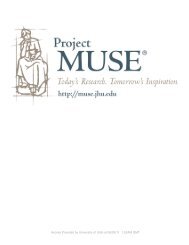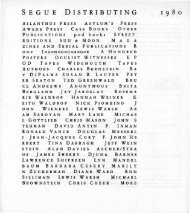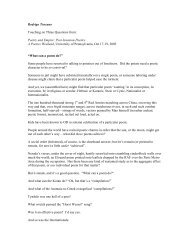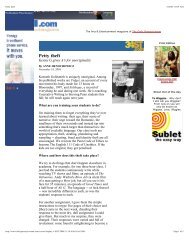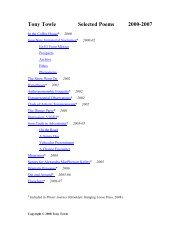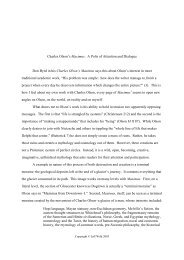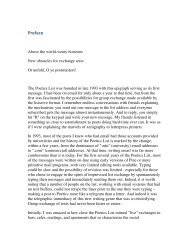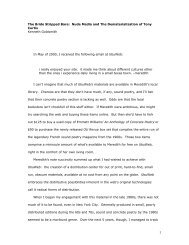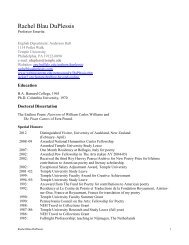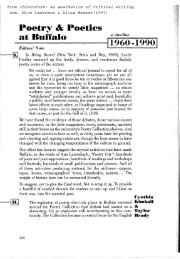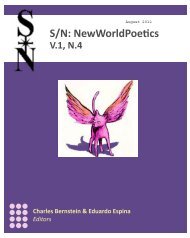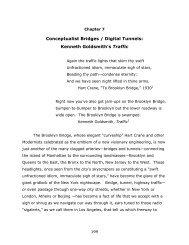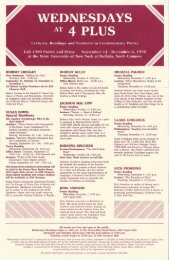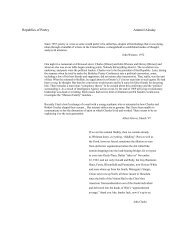P's and Q's of Poetry - Electronic Poetry Center
P's and Q's of Poetry - Electronic Poetry Center
P's and Q's of Poetry - Electronic Poetry Center
You also want an ePaper? Increase the reach of your titles
YUMPU automatically turns print PDFs into web optimized ePapers that Google loves.
DeMinter 15<br />
In his book, The Sacred Wood, T.S. Eliot cites that, “the dead writers are remote from us<br />
because we know so much more than they did. Precisely <strong>and</strong> they are that which we know,” but<br />
this was not a suggestion that writers blindly give into the “traditions” that have emerged around<br />
the knowledge <strong>of</strong> the dead writers. Eliot argues that, “if the only form <strong>of</strong> tradition, <strong>of</strong> h<strong>and</strong>ing<br />
down, consisted in following the ways <strong>of</strong> the immediate generation before us in a blind or timid<br />
adherence to its successes, ‘tradition’ should positively be discouraged.” He follows this<br />
assertion with the clever insight that, “we have seen many such simple currents soon lost in the<br />
s<strong>and</strong>; <strong>and</strong> novelty is better than repetition,” but his prescription is not a free license to ab<strong>and</strong>on<br />
all tradition as useless, it is merely a declaration that, “tradition is a matter <strong>of</strong> much wider<br />
significance,” including lexical traditions.<br />
Stewart expresses a similar suspicion <strong>of</strong> blind tradition in her book <strong>Poetry</strong> <strong>and</strong> the Fate <strong>of</strong><br />
the Senses, in which she cites that, “Emancipation is precisely what is promised falsely by the<br />
formalist method in its claim <strong>of</strong> literary transcendence <strong>and</strong> by any historicist method claiming<br />
contextual explanation” (253). Despite her concession that dated language is not liberating,<br />
Stewart’s work only lightly dives into the quotidian <strong>and</strong> there is a reluctance to allow it the same<br />
level <strong>of</strong> freedom exhibited in Goldsmith’s work that limits the accessibility <strong>of</strong> her work for<br />
contemporary audiences. Goldsmith is not without fault either however <strong>and</strong> his work is<br />
sometimes equally alienating to contemporary writers.<br />
In “Paragraphs <strong>of</strong> Conceptual Writing”, Goldsmith states that, “There is no reason to<br />
suppose, however, that the conceptual writer is out to bore the reader. It is only the expectation<br />
<strong>of</strong> an emotional kick, to which one conditioned to Romantic literature is accustomed, that would<br />
deter the reader from perceiving this writing” (Paragraphs on Conceptual Writing). Nonetheless,<br />
even Goldsmith himself must concede that antagonistic “emotional kick” his work threatens, is



